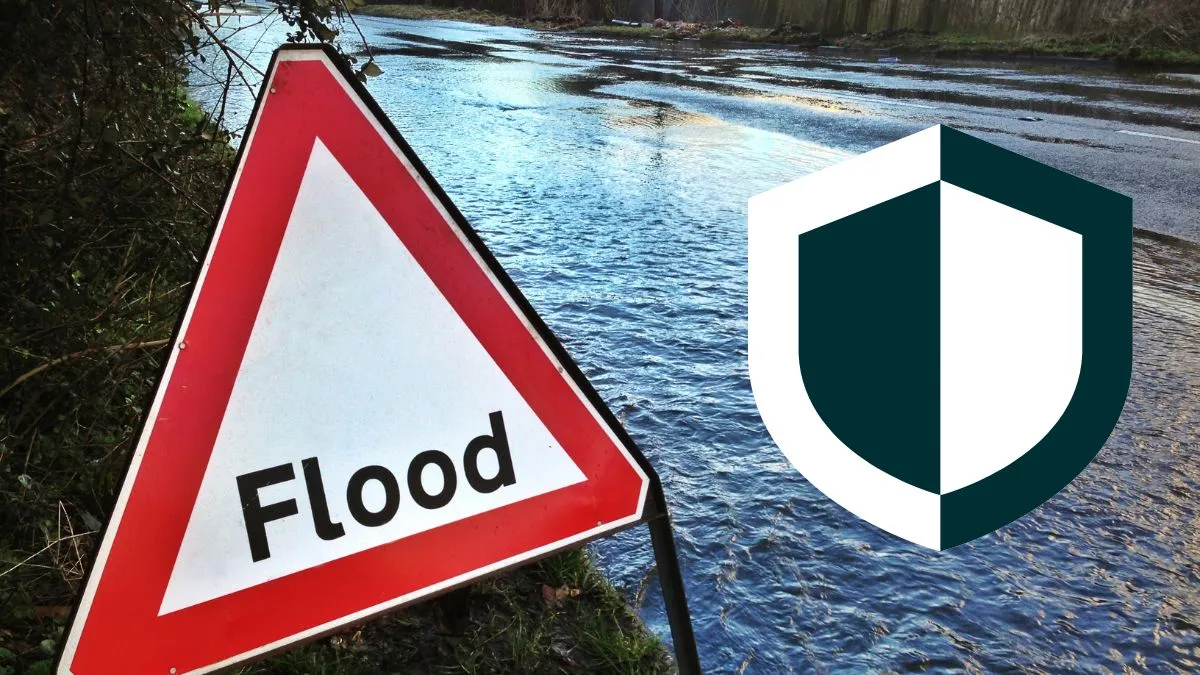Flood Damage Insurance: A village in Uttarakhand recently experienced a sudden cloudburst, resulting in flashfloods. The muddy water and debris swept through the area, causing destruction and loss of property. For those living in such flood-prone regions, it is crucial to insure themselves and their assets, such as homes and cars, in addition to their physical well-being.
An insurance policy can significantly reduce the financial burden that arises after a natural disaster like a flood. Here, we will talk about insurance schemes that can help mitigate financial difficulties after a flood. The question is: how can an insurance scheme protect your home, car, and health during such a crisis? Here are the types of insurance you should consider:
1. Home Insurance
If you live in an area susceptible to floods or landslides, home insurance is a necessity. This type of policy protects your home’s structure, as well as your belongings, including furniture and electronics. Before purchasing a policy, ensure it clearly states that it covers damage caused by floods. Read the policy documents thoroughly to confirm this.
If your standard home insurance policy does not include coverage for flood-related damage, you can often add temporary coverage for expenses like living arrangements and debris removal. Keep in mind that some insurance schemes have a waiting period, so it’s best to secure coverage before the monsoon season begins.
2. Motor Insurance
Motor insurance is essential for protecting your vehicle. Floodwater can cause significant damage to a car’s engine and electrical systems, leading to short circuits and other costly issues.
A comprehensive motor insurance policy typically covers natural disasters such as floods, landslides, and storms. However, a basic third-party insurance policy does not cover loss or damage to your own vehicle. Therefore, if you live in a flood-prone region, a comprehensive plan is highly recommended.
ALSO READ: Sri Lotus Developers IPO: Allotment Finalised; Check Listing Price On BSE And NSE Today
You can also consider adding these optional covers to your motor insurance policy:
Engine Protection Cover: This add-on provides coverage for damage to the car’s engine caused by water ingress.
Zero Depreciation Cover: This ensures that the full cost of replacing damaged parts is compensated for, without any deduction for depreciation.
Return to Invoice Cover: If your vehicle is declared a total loss, this add-on compensates you for the full invoice value of the car.
Consumables Cover: This covers the cost of consumables like engine oil, brake fluid, and other essential fluids that may be damaged or lost in a flood.
3. Health Insurance
Floods often lead to an increase in diseases like dengue, diarrhea, hepatitis, and typhoid. Additionally, injuries from slipping or from hidden objects in the water are common. A good health insurance policy can cover the costs of treatment for these illnesses and injuries.
When choosing a health insurance plan, carefully read the policy documents to understand the coverage for pre-hospitalisation and post-hospitalisation expenses, as well as their specific breakdown. Ensure the policy covers infectious diseases, day-care procedures, and ambulance expenses. For those living in high-risk regions, it’s advisable to consider a top-up or super top-up plan to enhance your coverage.
4. Parametric Insurance
In some regions, Parametric Insurance is available as a specialised cover. With this type of policy, a claim is automatically triggered and processed as soon as a certain level of rainfall is measured. This leads to much faster compensation for policyholders. Although these plans are currently limited in availability, they are a promising and effective option for the future.
ALSO READ: TCS Salary Hike: 80% Employees Set For Pay Raise Starting September 1 At India’s Largest IT Firm
What to keep in mind
1. Review your policy regularly:
Don’t wait for the monsoon season; get insured before floods occur.
2. Understand your coverage:
Familiarise yourself with every aspect of your policy and choose add-ons based on your specific needs.
3. Reduce financial loss:
While a flood is a natural disaster, the associated financial loss can be significantly reduced with the right insurance plan for your home, car, and health.
Remember, the right insurance scheme can be your truest ally during a difficult time.
